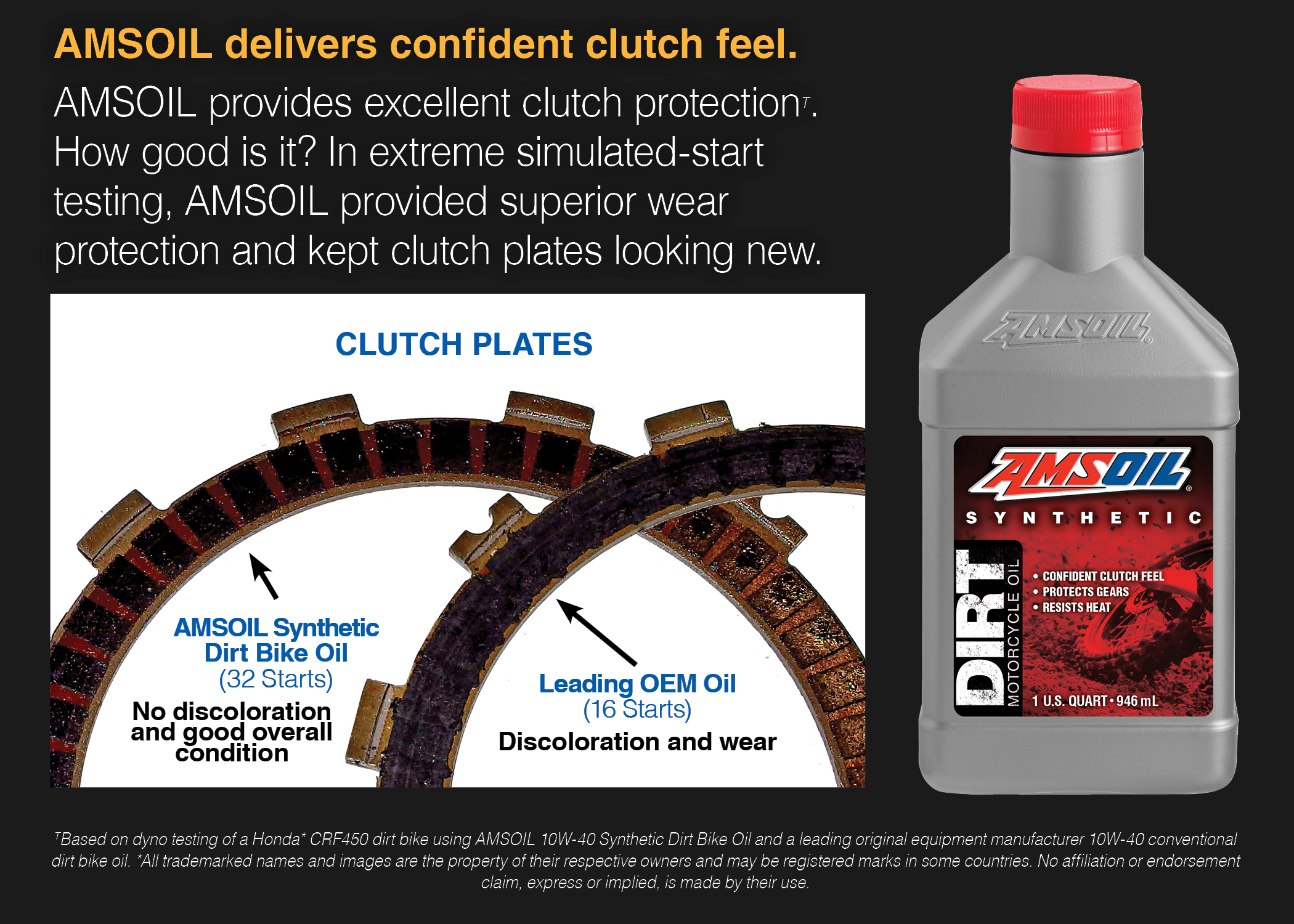Yes, engine oil can affect the clutch, especially if it’s a wet clutch system. The condition and type of engine oil can impact the clutch performance.
Engine oil plays a crucial role in lubricating the clutch components and maintaining their proper functioning. Using the right type of engine oil is essential for preserving the clutch’s longevity and performance. Additionally, the quality and cleanliness of the engine oil can influence the overall operation of the clutch system, making it crucial to use the appropriate oil for your specific vehicle.
Regular maintenance and using the recommended engine oil can help ensure optimal clutch performance and prevent potential issues.

Credit: blog.amsoil.com
Introduction To Engine Oil And Clutch Dynamics
Engine oil plays a crucial role in clutch performance. It lubricates the clutch components, ensuring smooth operation. Clutches work by engaging and disengaging the transmission from the engine. When the clutch pedal is pressed, the pressure plate pulls away from the clutch disc, interrupting the power flow to the transmission. This allows for gear changes and prevents stalling when the vehicle is stationary.
The Wet Clutch System Explained
The wet clutch system relies on engine oil to lubricate and cool the clutch components. Using the wrong type or amount of engine oil can lead to clutch slippage and difficulty in changing gears. Proper engine oil selection is crucial for maintaining the performance and longevity of a wet clutch system.
| Engine oil’s role in wet clutches |
| Engine oil plays a critical role in lubricating the components of wet clutches. In a wet clutch system, the clutch pack is immersed in the engine oil, which helps to reduce friction and dissipate heat. The oil also prevents the clutch components from wearing out quickly and helps to keep the clutch operation smooth. However, it’s important to use the correct type and grade of oil recommended by the manufacturer to ensure optimal performance and longevity of the clutch system. Using the wrong type of oil or oil with incorrect viscosity can lead to clutch slippage and premature wear of the clutch components. Therefore, it’s essential to adhere to the manufacturer’s specifications for engine oil when it comes to maintaining a wet clutch system. |
Can Engine Oil Cause Clutch Problems?
|
Engine oil can indeed affect the performance of a clutch. One of the main issues is oil contamination. If oil leaks or gets into the clutch system, it can cause the clutch to slip or not engage properly. This can lead to difficulties in changing gears and overall poor clutch performance. Viscosity, or the thickness of the oil, is another factor that can affect clutch operation. If the oil is too thick, it may not flow properly through the clutch system, leading to sluggish clutch engagement. On the other hand, if the oil is too thin, it may not provide sufficient lubrication to the clutch components, causing excessive wear and potential slipping. Therefore, it is crucial to use the correct type and viscosity of engine oil recommended by the manufacturer for your specific vehicle. Regular maintenance and inspections can help detect any oil leaks or contamination early on, ensuring optimal clutch performance and preventing potential problems. |
The Debate: Motorcycle Oil Vs. Car Oil
Using the right type of oil is crucial for the performance and longevity of your motorcycle’s clutch. Motorcycle oil is specifically formulated to meet the unique requirements of a motorcycle’s engine and transmission system. It contains additives that provide better lubrication, heat resistance, and shear stability, which are essential for optimal clutch function.
On the other hand, car oil is designed for the different demands of a car’s engine and does not have the necessary properties to protect and maintain a motorcycle’s clutch. Using car oil in a motorcycle can lead to clutch slippage, difficulty in changing gears, and potential damage to the clutch components.
It’s important to note that not all motorcycles have the same type of clutch. Motorcycles with wet clutches, where the clutch is bathed in oil, require oil that is compatible with a wet clutch system. Using the wrong oil can result in premature wear and contamination of the engine oil.
In conclusion, using the right type of oil, specifically designed for motorcycles, is essential for maintaining the proper functioning of the clutch and ensuring the longevity of your motorcycle’s engine and transmission system.
Symptoms Of Clutch Issues Due To Engine Oil
Symptoms of clutch issues due to engine oil:
Identifying clutch slip can be the first sign of clutch problems due to engine oil. If you feel a delay in acceleration or a sudden drop in RPM while shifting gears, it could be due to clutch slip. It is essential to suspect your engine oil if you experience these symptoms.
It is crucial to use the right engine oil for your motorcycle, especially for wet clutches. Wet clutches have the clutch pack inside the crankcase, allowing the engine oil to coat the clutch components, making the right engine oil selection very important.
Too much or too little viscosity in engine oil can cause problems with your clutch, causing it to slip and making it difficult to change gears. It is essential to use the right oil viscosity to lubricate the clutch properly and avoid clutch slip.
While bad motor oil does not cause clutch problems, a slipping clutch might be caused by an out-of-adjustment clutch linkage, a leaking hydraulic slave cylinder, or a worn clutch plate. Unfortunately, oil, coolant, or even rainwater can get into your clutch, ruining it beyond a simple drying out or burning off.
| Resources | Description |
|---|---|
| saint.cc | Motorcycle Wet Clutch – How Does It Work? |
| oilproducts.eni.com | The Right Engine Oil for Your Motorcycle |

Credit: www.gulfoilltd.com
Choosing The Right Oil For Your Clutch
Choosing the right engine oil for your clutch is crucial to ensure optimal performance and longevity. Understanding oil specifications is the first step in making the right choice. Recommendations for wet clutch systems include using oils with a JASO MA or MA2 rating, as these oils are specifically formulated for wet clutch systems and provide superior protection against clutch slippage and wear. Using car oil in motorcycles with dry clutches is generally acceptable, but it is important to use motorcycle-specific oil for wet clutch systems.
Maintenance Tips To Avoid Clutch And Oil Issues
Regular oil changes are essential for maintaining a healthy clutch and preventing oil-related issues. When it comes to the clutch, it is important to keep the oil clean and at the proper level. Dirty or contaminated oil can affect the clutch’s performance and cause it to slip or wear out prematurely. Additionally, using the wrong type of oil can also lead to clutch problems. It is crucial to use the recommended oil viscosity and type specified by the manufacturer. Inspecting the clutch regularly for any signs of wear or damage is also important for its proper functioning. If any issues are found, they should be addressed promptly to avoid further damage to the clutch. By following these maintenance tips and ensuring regular oil changes, you can help prolong the life of your clutch and prevent any oil-related issues.
Expert Insights And Conclusion
Engine oil plays a crucial role in the overall health of your clutch. It is important to use the right type of oil to ensure optimal performance and longevity of your clutch system.
Using car oil in a motorcycle with a dry clutch can cause damage as motorcycle oil is specifically formulated to provide better lubrication and cooling for the clutch components. Car oil may not have the necessary properties to withstand the higher temperatures and stresses associated with motorcycle clutches.
Furthermore, using an oil with low viscosity can lead to inadequate lubrication of the clutch, resulting in slippage and difficulty in changing gears. On the other hand, using too much engine oil can also cause clutch slippage due to excessive lubrication.
It is important to follow the manufacturer’s recommendations for the type and viscosity of oil to be used in your motorcycle. Consulting a mechanic or referring to the owner’s manual can provide valuable insights into the specific requirements for your motorcycle’s clutch system.
In conclusion, using the right type and viscosity of engine oil is crucial for maintaining the health and performance of your clutch. By ensuring proper lubrication and cooling, you can extend the lifespan of your clutch and enjoy smooth gear changes while riding.

Credit: www.aliexpress.com
Frequently Asked Questions
Will Oil Burn Off A Clutch?
Yes, engine oil can affect a clutch, especially if it’s a wet clutch. Dirty oil can gum up the clutch and affect its performance.
Can Wrong Oil Cause Clutch Problems?
No, wrong oil does not directly cause clutch problems. Clutch issues can be caused by other factors such as an out-of-adjustment clutch linkage, a leaking hydraulic slave cylinder, or a worn clutch plate. However, using engine oil with low viscosity may not lubricate the clutch properly, leading to slipping and difficulty in changing gears.
Will Bad Oil Make Clutch Slip?
It is possible for bad engine oil to make a clutch slip, especially if the oil has too low of a viscosity to lubricate the clutch properly. However, it is important to note that this is only applicable to wet clutches, which most motorcycles have.
If the oil is very dirty, it can gum up and cause clutch problems. It is recommended to use the right engine oil for your motorcycle to ensure proper clutch performance.
Does Engine Oil Lubricate A Wet Clutch?
Yes, engine oil lubricates a wet clutch as it coats the clutch components inside the crankcase, keeping them cooler and quieter. However, the oil may become dirty faster due to the clutch wear debris.
Conclusion
Based on the research and information gathered, it is clear that engine oil can indeed affect the clutch in motorcycles with a wet clutch system. Dirty or low viscosity oil can cause problems with the clutch, leading to slipping and difficulty changing gears.
It is important to use the right type of oil for your motorcycle and to keep it clean to ensure proper clutch performance. While car oil may be suitable for some motorcycles with a dry clutch, it is not recommended for those with a wet clutch system.
Overall, understanding the relationship between engine oil and the clutch is crucial for maintaining the longevity and performance of your motorcycle.


